Nearly every public and private business entity — across all levels of government, small and large businesses and major accounting firms (such as KPMG, EY, Deloitte and PwC) — employs finance professionals. These individuals help organizations manage their finances.
To improve their accounting skills, knowledge, credibility and job prospects, many financial and accounting professionals seek additional certifications, earning specializations in various accounting niches. We’ll explore five of the most popular accounting and finance certifications and how they can benefit finance professionals.
Top 5 accounting and finance certifications
We’ll take an in-depth look at five of the most popular and valuable accounting and finance certifications, along with some additional credentials you may be interested in pursuing.
1. Certified Government Financial Manager
Those interested in government accounting, financial reporting, auditing and budget planning at the local, state or federal level should consider the Certified Government Financial Manager (CGFM) certification offered by the Association of Government Accountants (AGA).
According to Payscale, those who have obtained their CGFM certification typically earn an annual salary of about $90,000. For comparison, the average salary of a budget analyst is about $69,000.
To obtain a CGFM certification, candidates must hold a bachelor’s degree and have at least two years of professional experience in government financial management. They must also pass three CGFM exams:
- Governmental Environment (GE)
- Governmental Accounting, Financial Reporting and Budgeting (GAFRB)
- Governmental Financial Management and Control (GFMC)
Each exam costs $150. Candidates must also pay an application fee of $90 for AGA members, $36 for student members and $120 for nonmembers. AGA also offers two live preparation courses in Alexandria, Virginia, for $950 and $725, as well as three virtual courses for $325, $725 and $525, respectively.
2. CMA
The Institute of Management Accountants (IMA) is the membership organization behind the CMA certification, which is aimed at management accountants and financial professionals.
Regarding what differentiates a CMA from other accounting-related professionals, the IMA explains that CMAs understand the “why” behind numbers, not just the “what.” That means a CMA’s role may involve analyzing and reporting on monthly financials, forecasts, and the annual budget, as well as providing strategic planning input.
Arvind Rongala, CEO of Invensis Learning, summarized it this way: “The CMA bridges finance and business strategy, equipping professionals to drive internal financial decision-making.”
A CMA certification can be lucrative. IMA’s Global Salary Survey reports that the median total compensation for CMAs is 58 percent higher than that of those without the designation. The study found that the overall median base salary in 2021 was $110,000, with an overall median total compensation of $124,000.
Globally, the average salary for CMAs in 2023 was about $14,853 higher than the average salary of non-CMA holders. IMA’s 2023 Global Salary Survey shows that 62 percent of CMAs credit their salary increases to their CMA certification.
To achieve the CMA designation, you must have the following:
- Current IMA membership
- A bachelor’s degree or an approved accounting certification
- Two years of relevant work experience
- A passing score on the two-part CMA exam
The first part of the CMA exam covers financial reporting, planning, performance management and analytics. The second part focuses on financial strategy and decision-making.
The IMA charges $295 for a Professional membership, an enrollment fee of $300 (for professional members) and $495 for each of the two exam parts. (A discount is available to students and academic members, and a limited number of scholarships are available each year.) If you wish to enroll in a review course, the cost will be between $1,000 and $2,000.
3. CPA
The CPA is considered the crème de la crème of accounting certifications. CPAs can work for public- or private-sector organizations or as consultants. CPAs can handle various tasks, such as maintaining financial records, corporate finance, budget oversight, tax preparation and financial planning.
Some CPAs earn additional certifications and take on more specialized roles, such as auditing internal financial records, using forensic accounting techniques to detect financial crimes or acting as fraud examiners.
Each state, along with several U.S. jurisdictions, certifies and licenses CPAs through its board of accountancy, so you’ll need to research your state’s specific requirements. A typical minimum is a bachelor’s degree with coursework in general and cost accounting, among other relevant fields. AccountingEdu.org and the Association of International Certified Public Accountants (AICPA) CPA Exam page are good starting points for determining the requirements you’ll need to meet.
The Bureau of Labor Statistics (BLS) reports that the average CPA salary is around $81,680, though CPAs who also hold a CMA certification earn an average of $151,017.
4. Chartered Financial Analyst (CFA)
The CFA Institute offers the Chartered Financial Analyst (CFA) certification, which is geared toward investment and portfolio managers, corporate finance advisors and analysts.
To be eligible for the CFA Level I exam, candidates must:
- Have a valid international passport
- Hold a bachelor’s degree (or be in the final year of a four-year program), or have 4,000 hours of professional work experience and/or higher education completed over at least three consecutive years
To become a CFA charterholder, candidates must also:
- Pass all three CFA exams (Levels I, II and III)
- Complete 4,000 hours of qualified professional work experience in investment decision-making, accrued over a minimum of 36 months
- Submit professional references and become a regular member of the CFA Institute (annual membership costs $299)
Each CFA exam focuses on specific competencies:
- Level I emphasizes knowledge and comprehension of investment tools
- Level II focuses on asset valuation and analysis
- Level III covers portfolio management and wealth planning
The CFA Institute charges a one-time program enrollment fee of $350 and a standard registration fee of $1,290 for each exam. Early registrants may receive a discount.
According to the Bureau of Labor Statistics, the median salary for financial managers was $161,700 in 2024.
5. Enrolled Agent (EA)
Tax professionals may be interested in earning the Enrolled Agent (EA) credential. Created by the IRS, this designation identifies individuals qualified to represent U.S. taxpayers in personal and business tax matters, such as collections and appeals. EAs typically have extensive experience preparing a wide range of federal and state tax returns. The EA is the highest credential issued by the IRS.
Financial consultant Ethan Richardson highlighted the IRS’s role in authorizing this credential and explained what’s involved in obtaining it. “Candidates must pass a three-part exam covering individual and business tax returns, tax planning and representation,” Richardson explained. “Taxation experts are qualified to advise, prepare and represent taxpayers.”
To become an EA, you must either:
- Have at least five years of IRS experience interpreting the tax code, or
- Pass all three parts of the Special Enrollment Exam (SEE)
Additional requirements include:
- Obtaining a Preparer Tax Identification Number (PTIN)
- Passing a background check
- Complying with IRS ethical standards
To maintain EA status, credential holders must complete 72 hours of continuing education every three years.
Each part of the SEE costs $267, and candidates must pay a $140 application fee after passing the full exam.
The National Association of Enrolled Agents (NAEA) provides additional information and training resources for individuals seeking to become an EA.
According to ZipRecruiter, the average annual salary for EAs is approximately $72,500, though pay varies by location and experience.




